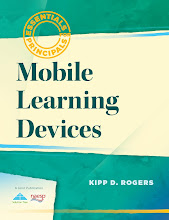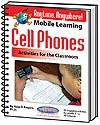 And the Academy Award for Best Supporting Actor goes to...
And the Academy Award for Best Supporting Actor goes to...We are preparing for a mobile learning project involving smartphones with two seventh grade English classes at my school. Today it took about 45 minutes of collaborating with the two English teachers (Rock Stars), our Reading Specialist and our Technology Integration Specialist to brainstorm activities for an entire unit using the graphic novel, Maus. Together we decided on activities that involved polling, blogging, google presentation and forms, creating podcasts, photostories, PSAs, digital story telling, posting to a social network, commenting/critiquing, back channeling and interviewing. All these activities were to be completed using literature circles, DRTA strategies, small groups, checking for understanding, rubrics and differentiated instruction.
The beauty of the 45 minute planning session was that during the conversation, the smartphone did not upstage sound instructional practice. In fact, if I could have obtained a transcript of the planning session and Wordled it, the words summarize, create and contrast would probably be the larger words in display.
As we plan on integrating mobile learning with instruction, mobile phones (or technology in general) should not be the lead actor in the movie. They should be supporting actors--of good instruction.


